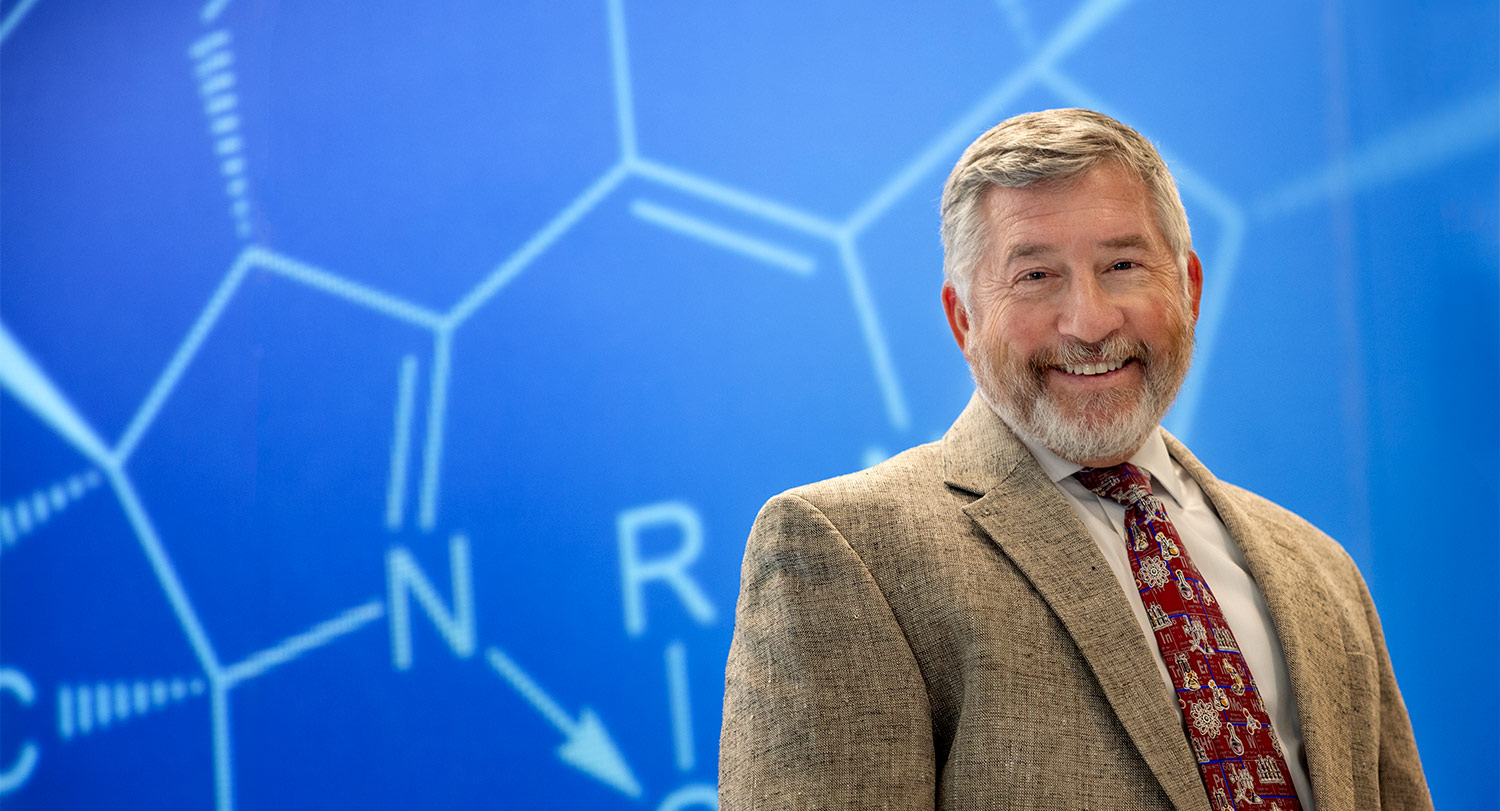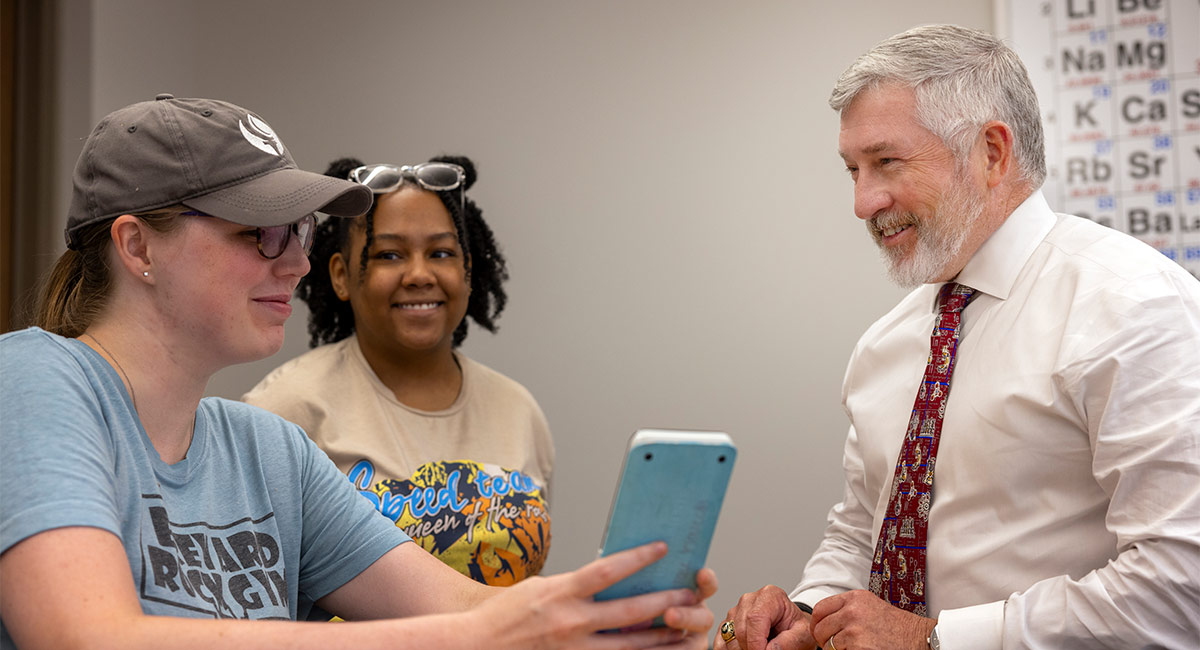
When Augustus Way Fountain retired from his military and government career — which included commanding a company in the 82nd Airborne, teaching at the U.S. Military Academy at West Point and working as a research director at a national defense laboratory — his wife asked him what he saw himself doing next.
“I didn’t have to think about it,” Fountain says. “I wanted to focus on teaching more than anything.”
The University of South Carolina was happy to oblige.
Fountain, who teaches chemistry to undergraduate and graduate students, is a winner of this year’s Garnet Apple award for teaching innovation. In the five years he has been at USC, he has revamped the general chemistry curriculum for the Honors College and chemistry majors, integrated the laboratory and lecture portions of the Instrumental Methods course, and helped redevelop and launch new versions of forensic science and forensic analytical chemistry to support the new minor program in forensic science, with an eye toward a forensic science major.
Fountain’s path in chemistry stemmed from an early interest in photography; he took sports photos for the local newspaper when he was a high school student. Back then, film was developed in darkrooms, using a mixture of chemicals to transform an exposed piece of film to form a negative image.
When it came time for college, his parents could not afford to send him to school. So he was making plans to enlist in the military. The recruiter noticed his grades and test scores and suggested he apply for an ROTC scholarship. He attended Stetson University as a chemistry major and graduated near the top of his Army ROTC class.

He started his career as an Army officer, served two combat tours and was happy in his position as a company commander. Then he received an unexpected phone call from the Department of the Army, asking if he had any interest in going to graduate school and teaching at West Point. He ended up earning his Ph.D. and then teaching at the military academy, first as a rotating military faculty and later as permanent faculty.
After 12 years at West Point, he worked for the Army as a senior scientist at the Pentagon.
“To be honest, I felt like the Pentagon was sucking the life out of me,” he says. “I wanted to retire. And I really felt that my calling was to give back to the next generation and focus on teaching.”
He says he enjoys teaching – and learns much each semester, even when he’s teaching the same subject as he has for years. He teaches chemistry classes from the 100 level to the 700 level.
“I like trying to connect with the students and finding new ways to explain the same principles. Populations change; teaching at USC is different than at West Point. The kids are different, they have different backgrounds. And it’s almost 20 years later. It’s a whole different generation.
“So I may use different examples and come about it in a different way. And that keeps me on my toes. I enjoy seeing when the light comes on in a student’s eyes, especially with chemistry. It’s a challenging subject for a lot of people. If I can find a way to get them to understand the material, then I’m doing my job.”